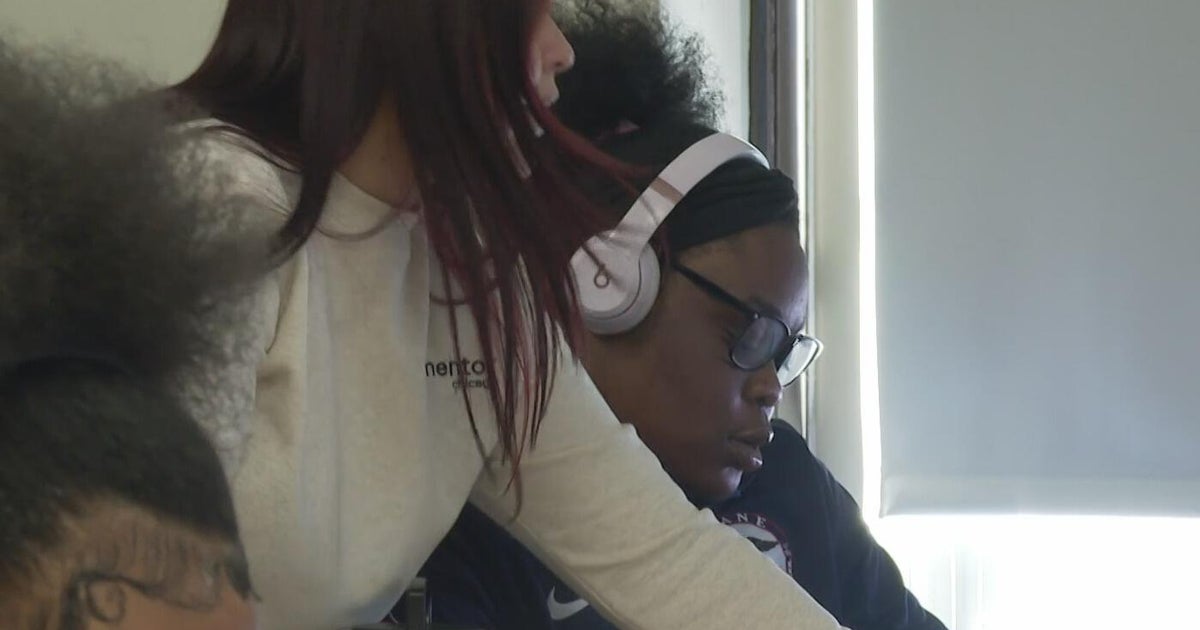Student loan interest rates: Everything to know right now
It's just about time to head back to school for the new fall semester. For college-aged students, that means stocking up for your dorm room, choosing a meal plan, and, most importantly, arranging your financial aid. And, if you haven't done that latter step already — including applying for federal or private student loans — you'll want to act fast. Most schools require you to settle your tuition bill before starting your classes.
Acting quickly is even more important given today's high student loan interest rates, which have increased on both federal and private loans over the past few years. The current rate on federal student loans for undergraduate students is now 5.50% — up from 3.73% two years ago. Private student loan rates have also increased considerably, with 10-year fixed-rate loans going from a record low of 4.87% last year to 7.56% today.
Fortunately, applying and preparing early may be able to help you secure a lower rate. Here's what you need to know about student loan interest rates — and what to do about making yours more affordable.
Explore the private student loan rates you may qualify for now.
How student loan interest rates work
The way student loan interest rates work depends on the type of loan you're talking about. Federal student loan rates, for example, are set by the U.S. government once per year.
"For federal loans, the interest rate is fixed each year for loans taken for the coming academic year," says Jack Wang, a wealth and financial aid advisor with Innovative Advisory Group. "Once the rate is set on a particular loan, the interest rate is set for the life of that loan."
Private student loans, on the other hand, are a little different. These rates can be either fixed, meaning the rate stays the same throughout the life of the loan, or variable, meaning the rate can adjust up and down over time, depending on market conditions.
Private loan rates also vary by lender, and are based on the borrower's credit score and debt-to-income ratio, along with other factors. Typically, though, the higher your credit score, the better your interest rate will be.
Don't wait until it's too late. Learn what private student loan rates are available to you right now.
How to get a low federal student loan interest rate
Federal student loan rates are set in stone, so there's no way to get a rate lower than the current one when taking out your loans. Once you have your federal student loan, however, you may have one option for reducing your payment: an income-based repayment plan.
This plan lets you base your payments on the income you're actually bringing in, making the monthly cost more affordable. And, with some — namely the Saving on a Valuable Education (SAVE) plan — interest will stop accruing as long as you make those agreed-up payments.
"Whatever interest you don't pay each month does not accrue and is forgiven, essentially dropping your effective interest rate to 0%," Geist says.
How to get a low private student loan interest rate
Lenders have control over the rates they offer on private student loans, so there are steps you can take to ensure a lower rate. The first is to try and have good credit before borrowing. That means both a good score (generally considered 670 or higher) and a strong history of making on-time payments.
If you don't have a lot of credit to your name, you may be able to use a co-signer — one with a good credit score, income and payment history — to help lower your rate as well.
Shopping around for your lender is another strategy that can help. Thanks to differing overhead costs, appetites for risk, and other factors, rates can vary quite a bit from one company to the next. Compare the offers you get from a number of different lenders, including the rate and term, to ensure you're getting the best loan possible for your unique situation.
When it's worth refinancing to get a lower rate (and when it's not)
As with any loan, you can also refinance your student loan — whether federal or private — down the line if rates decline to get a lower rate. Refinancing essentially just replaces your loan with a new one, only with different terms and a new rate.
Just keep in mind that if you refinance your federal loans, you'll have to use a private lender. That could help you obtain a lower rate, but could also mean losing out on the various repayment plans and hardship options that your federal loans come with (and many private loans do not).
Still, there may be a time when refinancing your federal loans makes sense. For instance, you might want to do this if average interest rates drop below the rate on your current loan and your credit score is high enough that you can qualify for a lower rate.
Refinancing an existing private loan is more streamlined.
"If you already have private student loans, refinancing those with a private bank is just a matter of what interest rate and terms are better and lower for longer," Geist says.
Where are student loan rates headed for the rest of 2023 and into 2024
Student loan interest rates have increased in recent years. This largely comes down to the Federal Reserve's numerous recent rate hikes to try and temper inflation, which have sent interest rates on most financial products upward.
"They are high. When interest rates go up, they generally go up across the board," Zack Geist, founder of Student Loan Tutor, says.
As for where they're headed in the future, inflation will likely play a big role. If inflation continues trending downward, which it has in recent months, interest rates could see a drop — particularly on federal loans.
"I expect the interest rate on future Federal loans to be lower a bit," Wang says. "The current year rate was set right at the height of inflation fears, which pushed interest rates up."
For private student loans, Wang says to expect things to hold stable.
"I don't expect much of a change, as private lenders have more flexibility in setting and changing rates as market and economic conditions change," Wang says. "I do not foresee a drastic increase or decrease in rates in the next year."
The bottom line
The fall semester is quickly approaching, so if you need help with covering the costs of your college education, you'll want to start the process now — before it's too late.
If private student loans are a possibility, check your credit and, if necessary, take steps to improve it before applying. You should also consider a co-signer with a high credit score — and be sure to also avoid these common mistakes.
Finally, don't forget to shop around. Compare the rates, loan terms, repayment options and other details from multiple lenders to ensure you get the most affordable loan possible.




